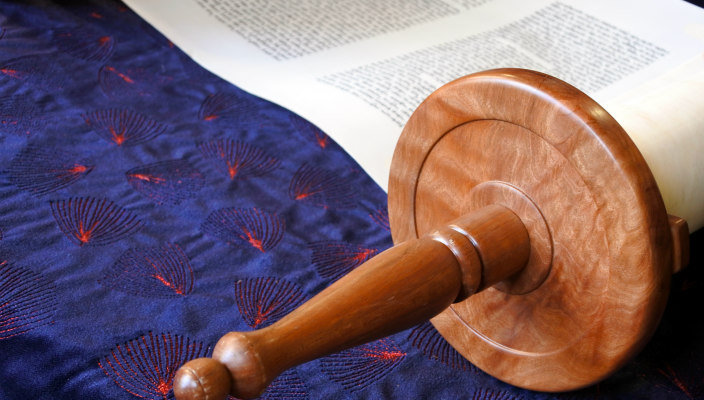
Oh my, Parashah Yitro packs a wallop! There is much to consider. The Reform Judaism website summary for Yitro states:
- Yitro brings his daughter Zipporah and her two sons, Gershom and Eliezer, to his son-in-law, Moses. (18:1-12)
- Moses follows Yitro's advice and appoints judges to help him lead the people. (18:13-27)
- The Children of Israel camp in front of Mount Sinai. Upon hearing the covenant, the Israelites respond, "All that God has spoken we will do." (19:1-8)
- After three days of preparation, the Israelites encounter God at Mount Sinai. (19:9-25)
- God gives the Ten Commandments aloud directly to the people. (20:1-14)
- Frightened, the Children of Israel ask Moses to serve as an intermediary between God and them. Moses tells the people not to be afraid. (20:15-18)
I considered discussing how important it is for leaders to know their limits, share the burden of leadership (a la Jethro), learn to delegate and surround themselves with responsible lieutenants. But I think many of us know these insights. It is acting on them that presents challenges for far too many leaders.
I thought about looking at in-law relationships. How fabulous that Jethro, 'Moses' wise father-in-law, counseled him to share the burden of leading the hundreds of thousands of the mixed multitudes who escaped Egypt. Furthermore, how remarkable that Moses and Jethro enjoyed such a deep and abiding relationship based on respect and direct communication. Wouldn't that be nice if all our familial relationships were so positive?
I could have talked with you about the enduring Ten Commandments. Christians and Jews alike read, study, and live by them, albeit the translations might differ. The commandments, positive and negative, espouse eternal values. The one that always personally resonated with me was 'Honor your mother and father.' I was lucky enough to have loved my parents and honoring them was second nature. I hope you can honor your parents as well.
Then, I envisioned being at Mt. Sinai because we are all supposed to have been there; we are all supposed to have received those commandments. There was a dense cloud, fire, lightning, thunder, earth-quaking, and a blasting shofar that could have broken eardrums. The people were so terrified that they sent their emissary, Moses, to meet with their God. Is this God? Here is my God? I don't think so!
When I was a little girl, I pictured God in a white robe with a long white beard on a throne in a cloud in the sky. I always imagined a benevolent elderly man (sorry feminists) who was kind, who smiled, who loved and cared for everyone. Never once did I imagine anger, fear, or meanness. I'm no longer that little girl (OK – BUT I am a very young 72!); however, I still imagine the power of goodwill. All that scary staging of Cecile B. DeMille’s film “The Ten Commandments” went right over my head.
Judaism allows us to come to our own understanding of Adonai. Simply said, I like that. No one can say someone is right or wrong. No one can dictate what or who God is or isn't. No human has the authority to say I cannot talk with God. In fact, I talk with God often. I don't expect answers, but I derive comfort from the conversation. I don't turn to God to change the world, but to help me sort it out. God and our heritage have provided the pathway, Torah, with its mitzvot and endless interpretations. I can do all the research I need. But when I want to have a heart to heart, God is always there. And, my God has never been the God of thunder, fire, quakes, etc. My Adonai is calm, patient, available, and always close by.
Maybe the newly freed Israelites needed the technicolor action to ignite their passion and claim their loyalty; it was a very different time. My Shabbat prayer for each of you to take a piece from this parashah and find your personal path to your God. Adonai is waiting for you.
Shabbat shalom!
Related Posts

Parashat Yom Rishon shel Rosh HaShanah

Cultivating a Culture of Accountability and Belonging

